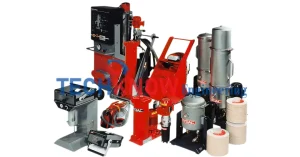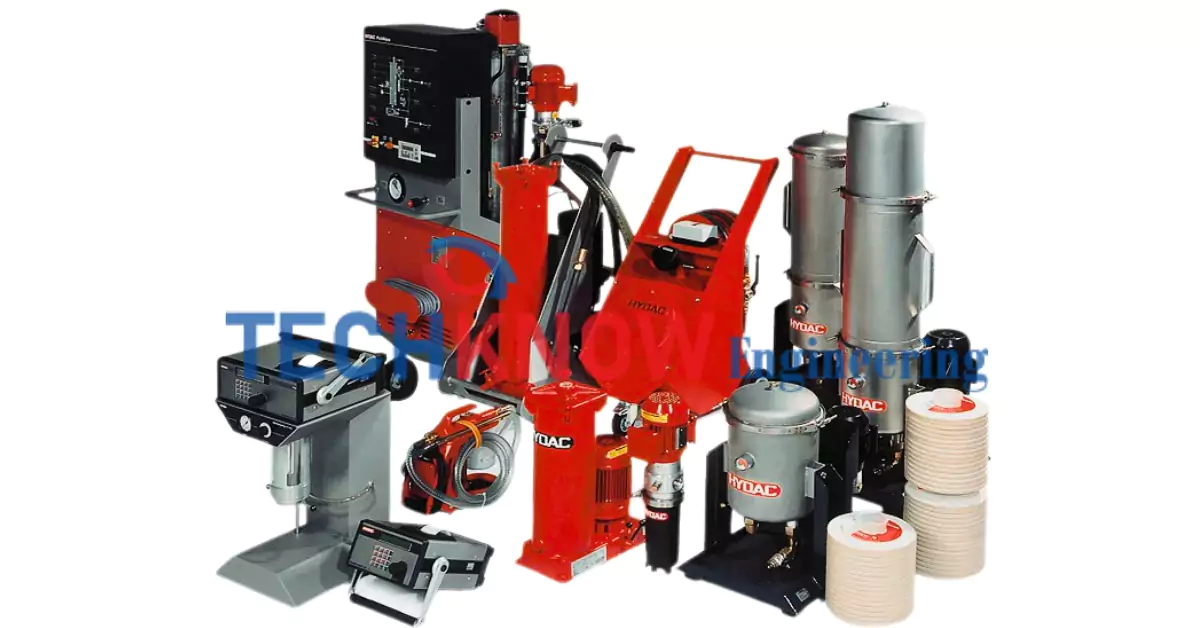Oil Filtration and Contamination Sensors The Essential Guide for Industries
Effective oil filtration and contamination monitoring are critical factors in maintaining the longevity and efficiency of industrial machinery. These processes reduce downtime, prevent costly repairs, and safeguard equipment performance. One company making strides in this field is Techknow Engineering Enterprise, with innovative solutions designed specifically to enhance oil quality management.
We will explore the importance of Oil Filtration and Contamination Sensors, and how Techknow Engineering Enterprise is revolutionizing industrial operations with cutting-edge solutions.
Why Oil Filtration and Contamination Sensors Matters in Modern Industries
Oil plays a significant role in industrial and mechanical systems, from lubricating gears and bearings to ensuring hydraulic consistency. However, contaminants can quickly degrade oil quality, leading to equipment malfunction and catastrophic failures.
The Risks of Neglected Oil Contamination
Without proper filtration, industrial oil is susceptible to contaminants such as particles, water, and additives breaking down over time. This contamination accelerates wear and tear on machinery components, increases operational costs, and reduces system reliability.
Benefits of High-Quality Oil Filtration Processes
Effective oil filtration systems extend the life of machinery and maintain steady operational performance. Benefits include:
- Reduced maintenance costs by preventing component degradation.
- Enhanced productivity, as clean oil ensures smoother operation.
- Lower environmental impact by reducing oil wastage and energy consumption.
What Are Oil Contaminants and How Do They Affect Systems?
Understanding contaminants is crucial to appreciating the importance of filtration and contamination sensors. Here’s a closer look at common types of contaminants and their effects.
Types of Oil Contaminants
1. Solid Particulates: Fine dust, dirt, metal shavings, and fibers can enter oil systems through wear and tear, the environment, or faulty seals.
Effects: Causes abrasion, clogs filters, and disrupts operational efficiency.
2. Moisture/Water: Water contamination often results from condensation, leaks, or pressure changes.
Effects: Leads to oil emulsification, corrosion of components, and reduced lubricating capacity.
3. Oxidation By-Products: Oxidation of oil forms acids, sludge, and varnishes, particularly when exposed to high temperatures.
Effects: Damages seals, decreases oil flow, and reduces thermal efficiency.
4. Air Bubbles: Air can become entrained in oil systems due to poor tank design or oil agitation.
Effects: Reduces lubrication and can lead to pump cavitation.
How Contamination Sensors Work to Improve Operations
Oil contamination sensors are advanced devices designed to monitor and detect impurities within lubrication or hydraulic systems in real time.
What Do Contamination Sensors Do?
Contamination sensors continuously measure oil for parameters such as particle count, water content, and varnish levels. Leveraging advanced technologies like laser or infrared analysis, these sensors provide accurate readings to equipment operators.
Features of Modern Contamination Sensors
- Real-Time Monitoring: Instantly alerts operators to contamination levels, allowing for prompt corrective actions.
- High Sensitivity: Detects minute particles and impurities often invisible to the naked eye.
- Data Logging and Integration: Many sensors store and transmit data, making it easy to analyze trends and improve maintenance strategies.
- Cost and Time Efficiency: Enables predictive maintenance, avoiding unplanned downtimes and costly repairs.
Benefits of Using Contamination Sensors
The implementation of Oil Filtration and Contamination Sensors offers numerous advantages for businesses aiming for operational excellence.
- Enhanced Machine Longevity: By identifying and reducing contaminants, sensors minimize wear and tear, extending the lifespan of equipment.
- Improved Efficiency: Clean oil ensures optimal performance, reducing energy consumption and operational costs.
- Reduced Maintenance Costs: With continuous monitoring, there is less need for reactive maintenance, resulting in long-term cost savings.
- Lower Environmental Impact: Fewer oil changes and less waste contribute to more sustainable practices.
- Enhanced Safety: Contaminants can lead to sudden equipment failures, posing a safety risk to operators. Sensors ensure a safer working environment by preventing unforeseen breakdowns.
Applications of Oil Filtration and Contamination Sensors Across Industries
Oil filtration and contamination monitoring play an indispensable role across various industries.
- Automotive: Ensures smooth operation of hydraulic brakes, transmissions, and power steering systems.
- Manufacturing: Maintains efficiency in CNC machines, press systems, and assembly lines by regulating oil quality in hydraulic systems.
- Energy and Power Generation: Safeguards turbines, compressors, and transformers from potential oil degradation, securing uninterrupted power generation.
- Aerospace: Critical for hydraulic and fuel systems performance in aircraft, where contamination could lead to catastrophic failures.
- Marine and Shipping: Ensures smooth functioning of large engines, hydraulic systems, and winch mechanisms in corrosive saltwater environments.
Techknow Engineering Enterprise The Trusted Partner in Oil Filtration
At Techknow Engineering Enterprise, we understand the vital role that clean oil plays in enhancing industrial efficiency. That’s why we offer state-of-the-art oil filtration and contamination sensors tailored to meet the needs of your business.
Cutting-Edge Solutions
- Advanced Sensors: Our contamination sensors provide highly accurate, real-time data for monitoring oil conditions. Equipped with user-friendly interfaces and robust designs, they are ideal for any industrial setting.
- Customizable Filtration Systems: We design and implement bespoke oil filtration systems that align with your operational goals, ensuring top-tier performance.
- Support and Training: Our team doesn’t just deliver products—we partner with you to optimize your existing systems and train your team on advanced oil management practices.
Why Choose Techknow Engineering Enterprise?
- Years of experience with clients across industries.
- Proven track record of reducing costs and improving efficiency.
- Innovative product designs that deliver reliable results.
Looking Ahead Future Trends in Oil Filtration Technology
The landscape of Oil Filtration and Contamination Sensors monitoring is rapidly transforming, thanks to technological advancements such as IoT (Internet of Things) and AI. Future trends to watch for include:
- Predictive Maintenance Systems leveraging AI-powered contamination data.
- Smart Filtration Solutions that automatically initiate cleaning processes when contamination levels reach a certain threshold.
- Sustainable Practices focusing on eco-friendly filtration materials and methods to support global sustainability goals.
With firms like Techknow Engineering Enterprise leading the way, we can expect these exciting changes to take oil quality management to new heights.
Oil Filtration and Contamination Sensors

With this comprehensive guide, we hope to inspire industries to prioritize oil quality management through innovative tools like those offered by Techknow Engineering Enterprise. Take the next step toward improved operations and sustainability by exploring our solutions today.
Product Brand: Techknow Engineering Enterprise
Product Currency: INR
Product In-Stock: InStock
5

